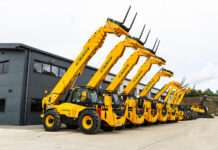When it comes to manufacturing services, there are two main options available: custom manufacturing services and turnkey manufacturing services. Both have their advantages and disadvantages, so how do you decide which option is best for your business? In this blog post, we’ll explore the different types of manufacturing services offered by global sourcing companies and discuss how to choose the right one for your business needs.
An Overview of Custom and Turnkey Manufacturing
Custom and turnkey manufacturing are two types of services that businesses use to source parts and products. They both involve engaging with a third-party supplier to design, produce, and assemble items. However, the processes are different, and businesses must choose which one is best for them.
Custom manufacturing is a process in which the customer specifies the requirements for their desired product. The custom manufacturer then creates a product that meets those exact specifications. This type of manufacturing is suitable for customers who need a specific item or have intricate design requirements.
Turnkey manufacturing, on the other hand, involves a supplier designing, producing, and assembling a product to the customer’s specifications. In this process, the supplier provides everything from the initial concept to the finished product. This type of manufacturing is ideal for businesses that need large quantities of similar products quickly.
Both custom and turnkey manufacturing can be beneficial to businesses. The right option depends on the complexity of the product and how quickly it is needed. Ultimately, choosing between custom and turnkey manufacturing services comes down to understanding your business’s needs and finding a partner that can provide the best solution.
The Pros and Cons of Custom Manufacturing
Custom manufacturing is often the best choice for businesses with unique needs that require custom-designed products. This process allows companies to develop a product tailored to their specific requirements, often resulting in a higher quality product that meets the exact specifications of the customer. Additionally, custom manufacturing can lead to better control over production timelines, pricing, and quality.
One of the major drawbacks of custom manufacturing is that it can be more costly than turnkey manufacturing services due to the increased development and design costs associated with the process.
In addition, custom manufacturing projects can be more time-consuming than traditional manufacturing services, which may not fit well with a company’s timeline and budget. Custom manufacturing may be subject to unexpected delays due to unforeseen complications that arise during the design and production process.
The Pros and Cons of Turnkey Manufacturing
Turnkey manufacturing is a popular option among businesses that need a quick, cost-effective solution for production. In turnkey manufacturing, you can purchase everything you need from a single source and have it delivered ready to use. This eliminates the need to manage multiple vendors, reducing your overall costs. Plus, it makes the entire process more efficient.
The Pros of Turnkey Manufacturing
1. Easy and Quick Solution: With turnkey manufacturing, you don’t have to spend time sourcing companies in the usa, sourcing parts, building components, and designing the product. All of the steps are handled by the turnkey manufacturer, allowing you to get your product to market faster.
2. Reduced Cost: Turnkey manufacturers typically have lower overhead costs than custom manufacturers because they specialize in producing large volumes of products quickly and efficiently. This allows them to offer competitive prices on their services.
3. Quality Control: Turnkey manufacturers are experienced in working with the same components and materials over and over, so they know exactly how to make sure the finished product meets your specifications and quality requirements.
The Cons of Turnkey Manufacturing
1. Limited Customization Options: Because turnkey manufacturing requires working with the same components and materials, it can be difficult to customize your product in any significant way. You will also be limited in terms of the types of materials available.
2. Lower Quality: While turnkey manufacturers can produce high-quality products, they are not as focused on achieving perfection as custom manufacturers are. As such, some turnkey products may not meet the highest standards of quality.
3. Less Flexibility: Turnkey manufacturing is ideal for businesses that are looking for a “one-size-fits-all” solution, but if your needs change over time, you may find that turnkey manufacturing is no longer a good fit for your business.
Which One is Right for Your Business?
When it comes to manufacturing services, custom, and turnkey solutions can both be effective depending on the needs of your business. Custom manufacturing is a great option if you’re looking for a product that is tailored specifically to your needs. You’ll be able to select the materials and design of your product, as well as negotiate a price that fits within your budget. However, custom manufacturing does require a longer lead time and more resources in terms of developing the product.
on the other hand, turnkey manufacturing is a great option if cost is a factor. The benefit of turning to a turnkey manufacturer is that you can purchase a fully tested and proven product, which eliminates some of the development costs associated with custom manufacturing. You will, however, have less flexibility when it comes to designing your product as a result.
Ultimately, the decision of which manufacturing service to use will depend on the needs and budget of your business. If you need a specialized product that meets specific criteria, custom manufacturing may be the best option. so if you’re in a hurry, want something of good quality at a cheaper price, and can’t or won’t develop the solution yourself, then a turnkey manufacturing company is a right solution. Always consider your options and compare them before making a final decision.




















